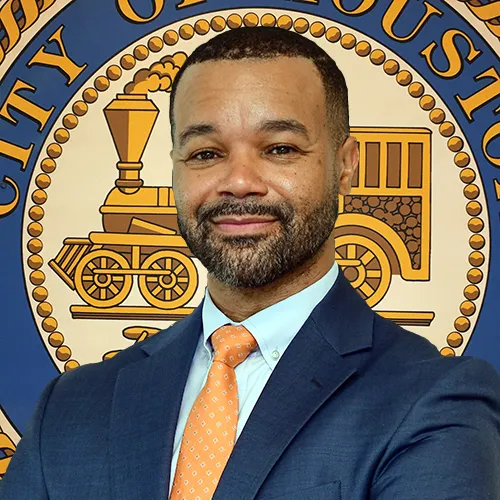Houston residents can know exactly how their tax dollars are being spent, thanks to the Open Finance initiative launched by the city last summer.
The initiative created a one-stop-shop public portal with graphics and data related to the city’s budget, payroll and vendor payments. While much of this information was previously available online, it was scattered across different digital locations, said Will Jones, Houston’s chief business officer and director of finance.
Smart Cities Dive caught up with Jones to learn how citizens have used the portal, why the city was selective about which data was included and why he recommends other cities launch similar initiatives.

Editor’s note: This interview has been edited for clarity and brevity.
How have residents, businesses and other stakeholders received the Open Finance initiative?
We finalized it in March because we did it in three phases. We started off with the open budget, and we went to the open payroll, and then open checkbook was the last one. We've just completed our budget workshop for the next fiscal year. And from the citizens that actually came to participate in the budget workshop, several of them did say that they appreciated having that data portal out there so that they could even be more involved. They're able to look at all of our budget data so that they can ask their questions about where the money is going.
That was really rewarding, knowing that the citizens actually utilize that tool to review data and come to the city council meeting and ask those tough questions about the data that they have access to. The citizens feel like they have more at their fingertips to review our city government budget and how the money's being allocated.
How has the Open Finance initiative affected how Houston officials make decisions, or what could the impact be?
It's still new, so I think they're still getting used to it. We put training videos out there so that they can learn how to navigate it. But I do anticipate that [the City Council will use it] — they have access to everything we're looking at here in finance, and all the data is updated monthly. I believe it will help them make better decisions on how we allocate funding and to be able to ask the right questions. Because even in our budget workshops, again, I'm seeing the City Council asking questions about some of the data that’s out there.
Do you have any lessons learned or best practices for other local governments considering similar initiatives?
I was involved from the very beginning, through all phases, and there are definitely some lessons learned. Be very, very detailed in defining the data set [by] having the right people from your organization ... clearly define what those data sets are before you try to push the data out there. There's a lot of data in our system. Some of it is not as useful because there are a lot of back-end transactions that don't really drive financial decisions. When you get all the data elements — the cost centers, the funds — you really want to make sure you have people involved that fully understand it because that upfront part of it, defining it, is very important as you're trying to scope out the project.
There are some people who, we realized, we should have pulled in earlier, but it's just certain things we didn't know as we were going through it. We had to work a little faster towards the end once we realized [that]. It's important to have the right people involved in that project. That's a big lesson learned.
[You should also know] how you want the data to be visualized — thinking through it like a citizen — because there a lot of times when — because we're involved in the work every day — we're used to thinking a certain way. But a lot of times, it can be complex for people that aren't used to it. So, make sure you're presenting the data in a way that's very easily consumed by citizens that may not fully understand government financing and accounting. We had to go through several iterations of some graphics and charts.
I'm very, very proud of this initiative. It took a lot of work, but I am definitely seeing the benefit of it, and citizens really appreciate feeling like they have access to the same data that we have access to. I do recommend it. It's especially important that we show how taxpayer dollars are being spent. It's a right for them to know that. And it's rewarding that they can ask those questions and feel like they're a part of the process.












